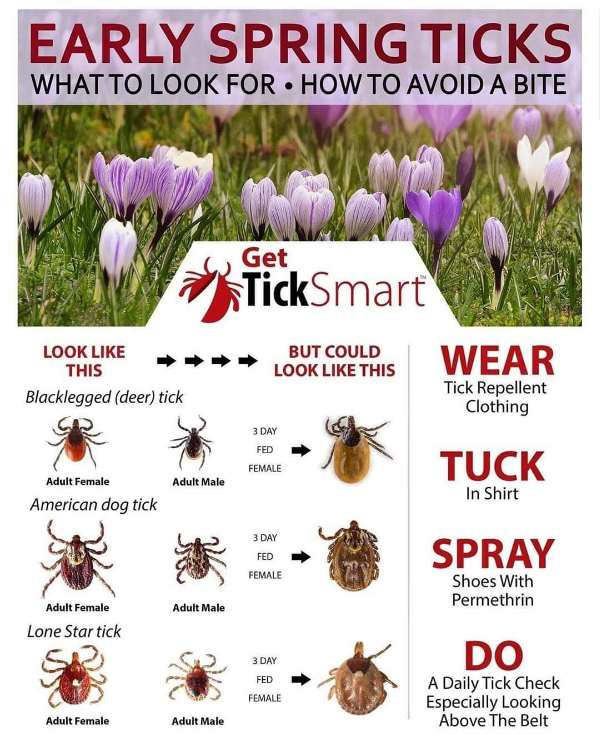- By -Staff
- Around Town
 Print
Print 
State Senator Pam Helming urged local residents Thursday to take precautions to help prevent Lyme and other tick-borne diseases as National Lyme Disease Awareness Month is upon us in May. Experts are predicting a much earlier start to the season due to the warmer winter we experienced.
"It is important to know about tick bite prevention before going outdoors. Many people are taking part in outdoor activities with their families due to the COVID-19 PAUSE order, creating an increased risk for contracting tick-borne diseases. Lyme and other tick-borne diseases impact thousands of individuals and families across our region. We have to continue to educate and raise awareness to ensure that people can enjoy the outdoors safely," Helming said.
Local experts say that ticks have been active because of the warmer winter the region experienced.
"With the current pandemic and stay-at-home rules, many are finding the need to be outdoors and can possibly be exposed to ticks, as parks and hiking trails are still open," says Cornell entomologist Jody Gangloff-Kaufmann. It's important to know how to recognize a tick, take preventive steps, and do a tick check each time you go out. Although ticks aren't everywhere, they can be anywhere so be aware of your surroundings."
Cornell entomologist Laura Harrington says that the bacterial infection that causes Lyme disease is the most important tickborne human infection in the United States, with between 200,000 to 300,000 annual reported cases. She says people contract Lyme disease most often from the blacklegged tick or 'deer tick', most commonly found in forested areas.
"Personal protection measures are important to consider before going outside," she says. "You should wear repellent, light-colored clothing and tuck your pantlegs into your socks. You can also treat your clothing with permethrin or purchase permethrin-treated clothing."
Helming suggested five simple steps for protecting yourself from ticks:
- Wear long pants and long-sleeved shirts, and tuck the legs into your socks or boots. This helps keep ticks from reaching your skin.
- Wear light colored and tightly woven clothing. This makes it easier to see ticks.
- Use repellents that contain 20% or more DEET or Picaridin.
- Throw your clothes in the dryer for 20 minutes high heat, after spending time outdoors.
- Check yourself, your children, and pets at least once per day for ticks. A tick is so small it can easily go unnoticed. Conduct a whole body check including groin, armpits, belly button, base of hairline, behind ears, and behind knees.

Harrington adds that it takes between 24 and 48 hours before a tick can begin transmitting Lyme bacteria, so frequent checks are good prevention.
"Look for ticks all over your body and even on your back, neck and hairline. If you find a tick, remove it carefully with sharp tweezers by grasping the tick as close to where it is attached to the skin as possible and pulling," Harrington advises. "Once you are back inside, remove your clothing and place it in a hot dryer for at least 20 minutes, if possible. Ticks are vulnerable to drying out and the combination of dry heat will kill them. If you cannot place your clothing in a dryer right away, you can place it in a sealed garbage bag for later drying. This is also a good time to take a shower and perform a tick check."
v16i17



